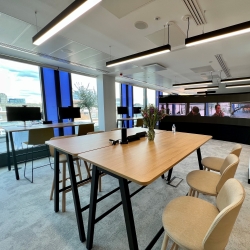September 15, 2023
Wellbeing, flexibility and work-life balance top most employees’ wish list in 2023
 The latest Employee Wellbeing Data Report [registration] from flexible office provider Mindspace claims that around 9 in 10 employees consider wellbeing facilities and offerings are ‘critical’ when choosing a workplace, and 82 percent expect support from their employers in achieving a work-life balance. The report argues that whilst the trend of ‘quiet quitting’ may be abating and the ‘return-to-office’ mandates are increasing, the survey suggests that attitudes towards the workplace and work-life balance continue to shift, with the majority of employees putting more emphasis on mental and physical health and overall wellbeing. More →
The latest Employee Wellbeing Data Report [registration] from flexible office provider Mindspace claims that around 9 in 10 employees consider wellbeing facilities and offerings are ‘critical’ when choosing a workplace, and 82 percent expect support from their employers in achieving a work-life balance. The report argues that whilst the trend of ‘quiet quitting’ may be abating and the ‘return-to-office’ mandates are increasing, the survey suggests that attitudes towards the workplace and work-life balance continue to shift, with the majority of employees putting more emphasis on mental and physical health and overall wellbeing. More →


















 Zoom has opened a new London ‘Engagement Hub’ which the firm claims will spearhead the shift from traditional office spaces to ‘experiential working hubs’. With the demand for hybrid working and remote capabilities giving rise to unconventional ways of operating, Zoom says it has designed its new office to support the changing nature of the employee experience, marking a new era of modern work.
Zoom has opened a new London ‘Engagement Hub’ which the firm claims will spearhead the shift from traditional office spaces to ‘experiential working hubs’. With the demand for hybrid working and remote capabilities giving rise to unconventional ways of operating, Zoom says it has designed its new office to support the changing nature of the employee experience, marking a new era of modern work. 















September 14, 2023
Is the Flexible Working Bill a game changer or paper tiger?
by Sam Ross • Comment, Flexible working